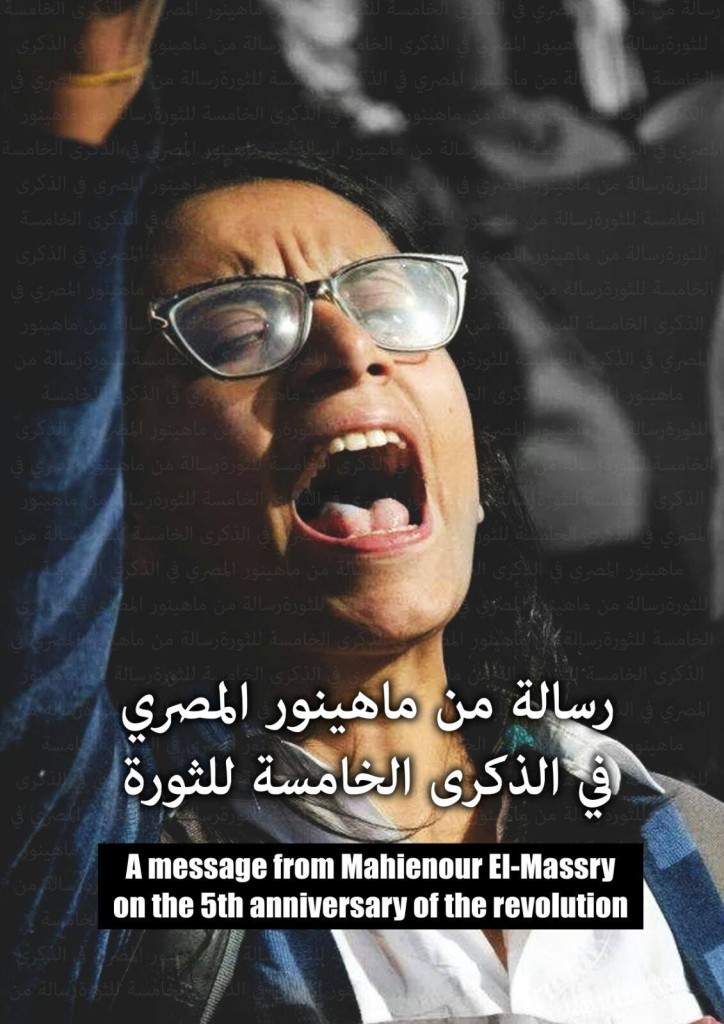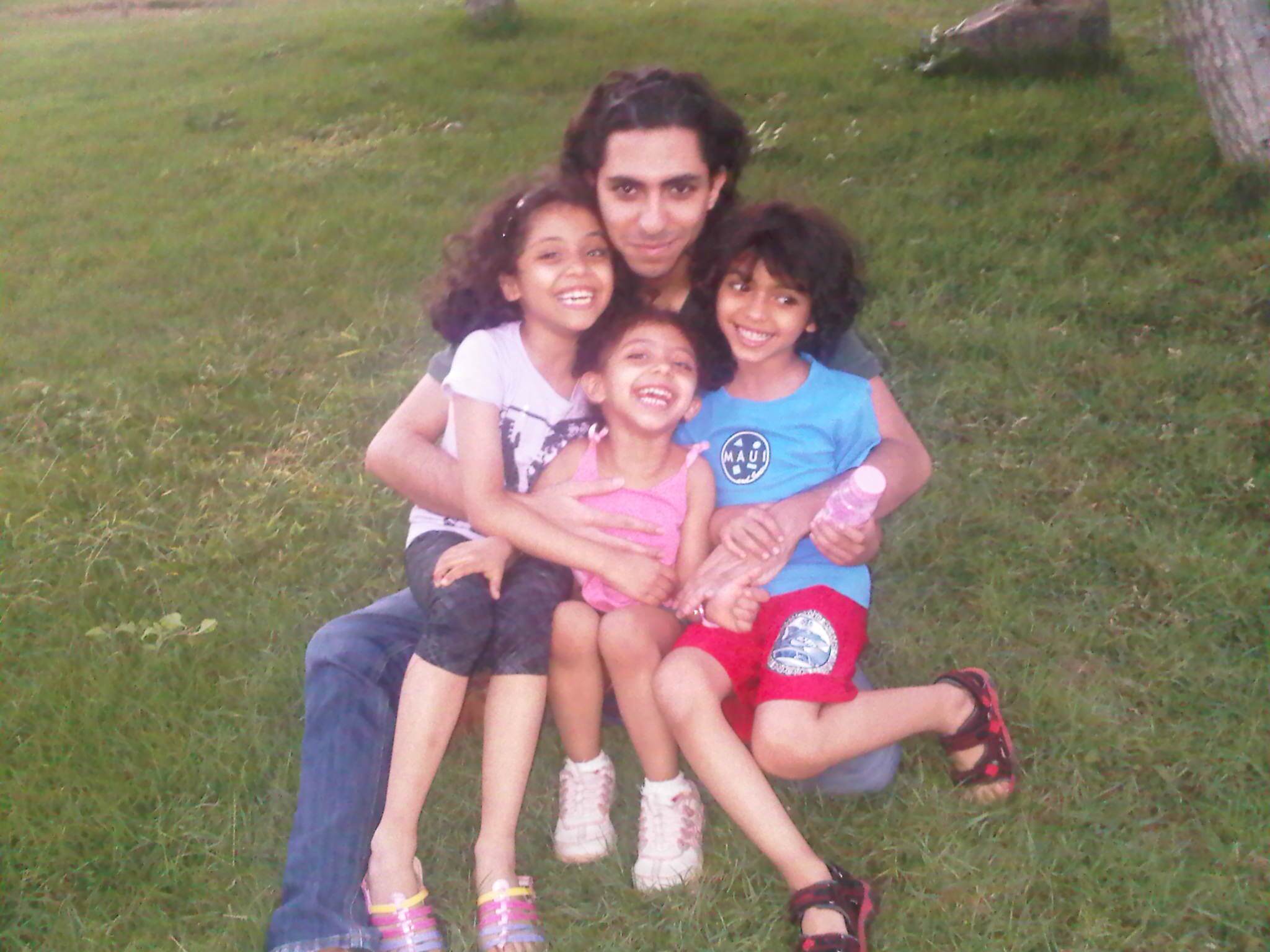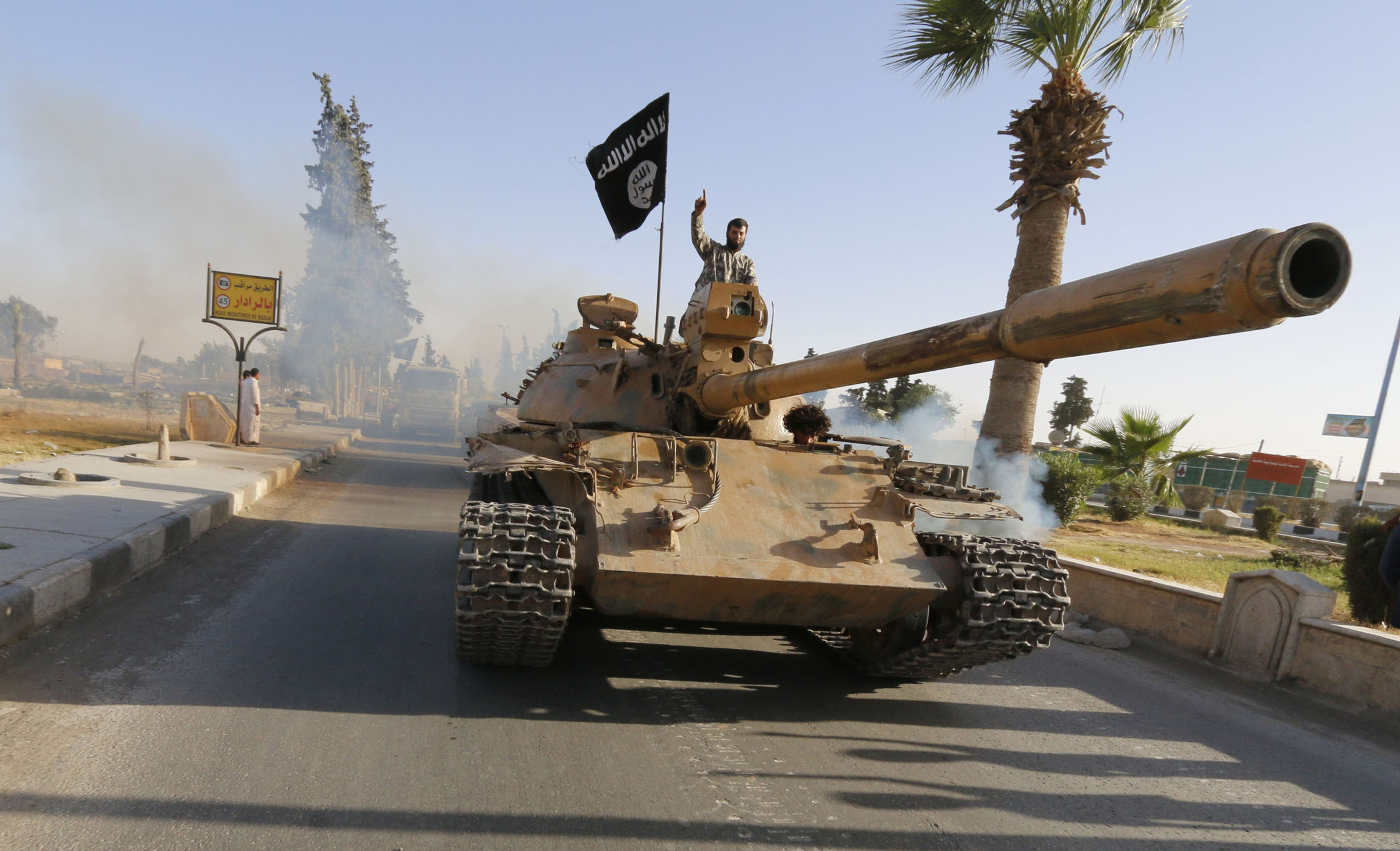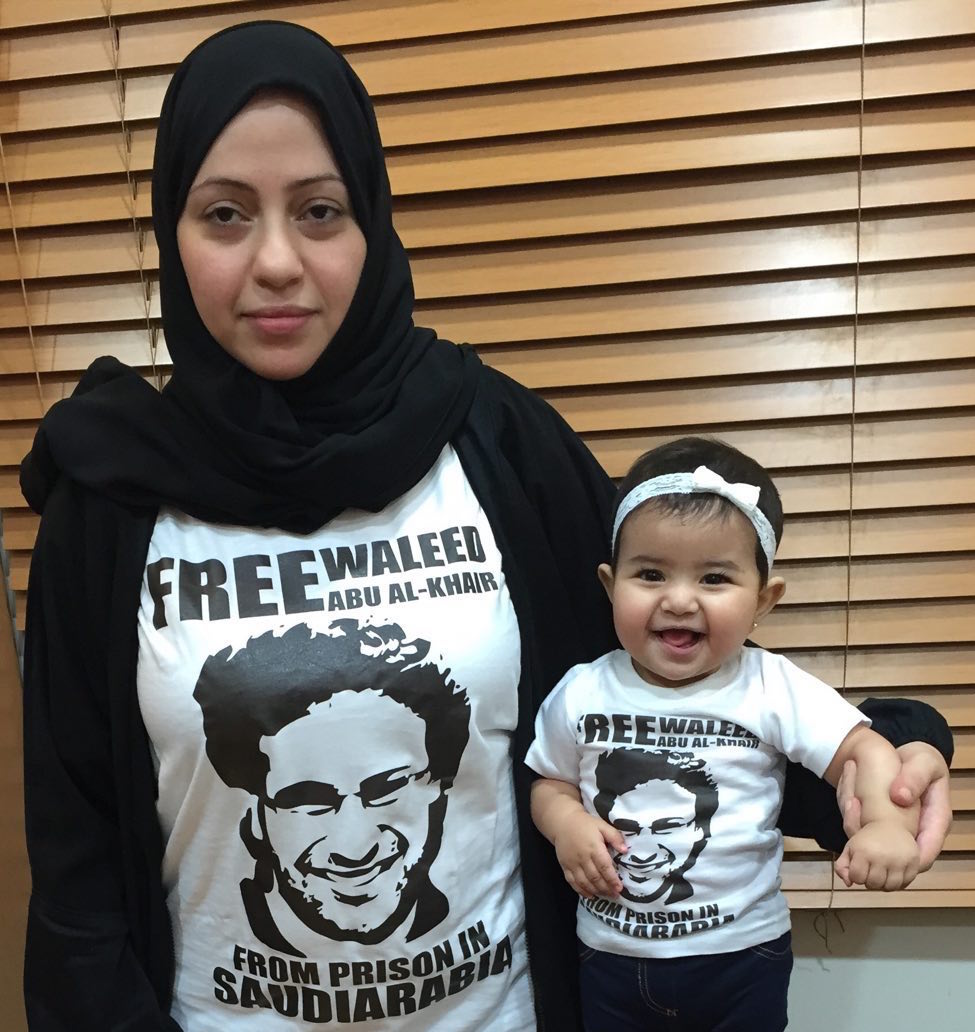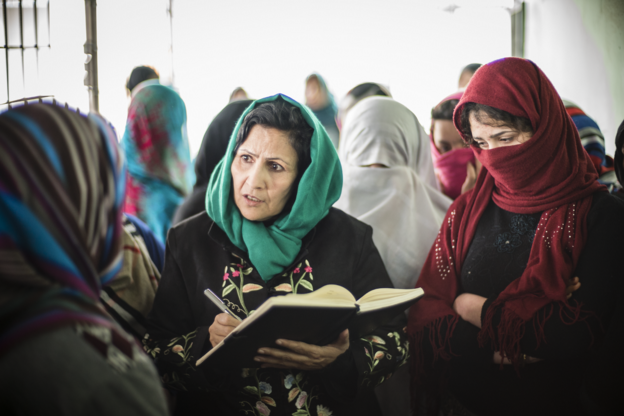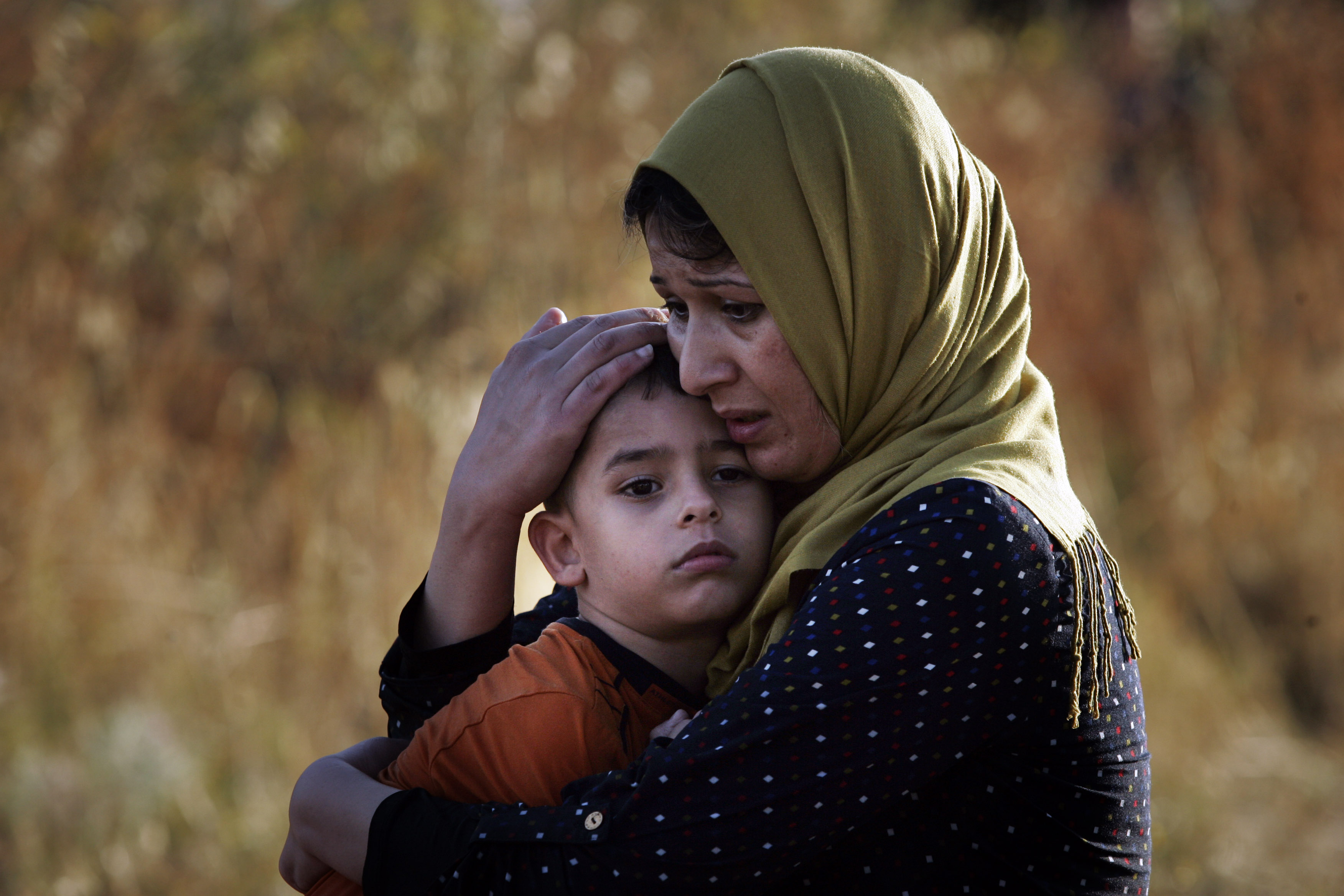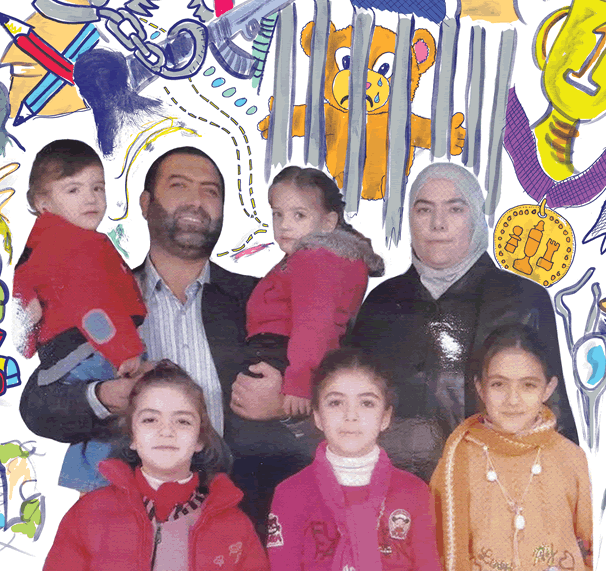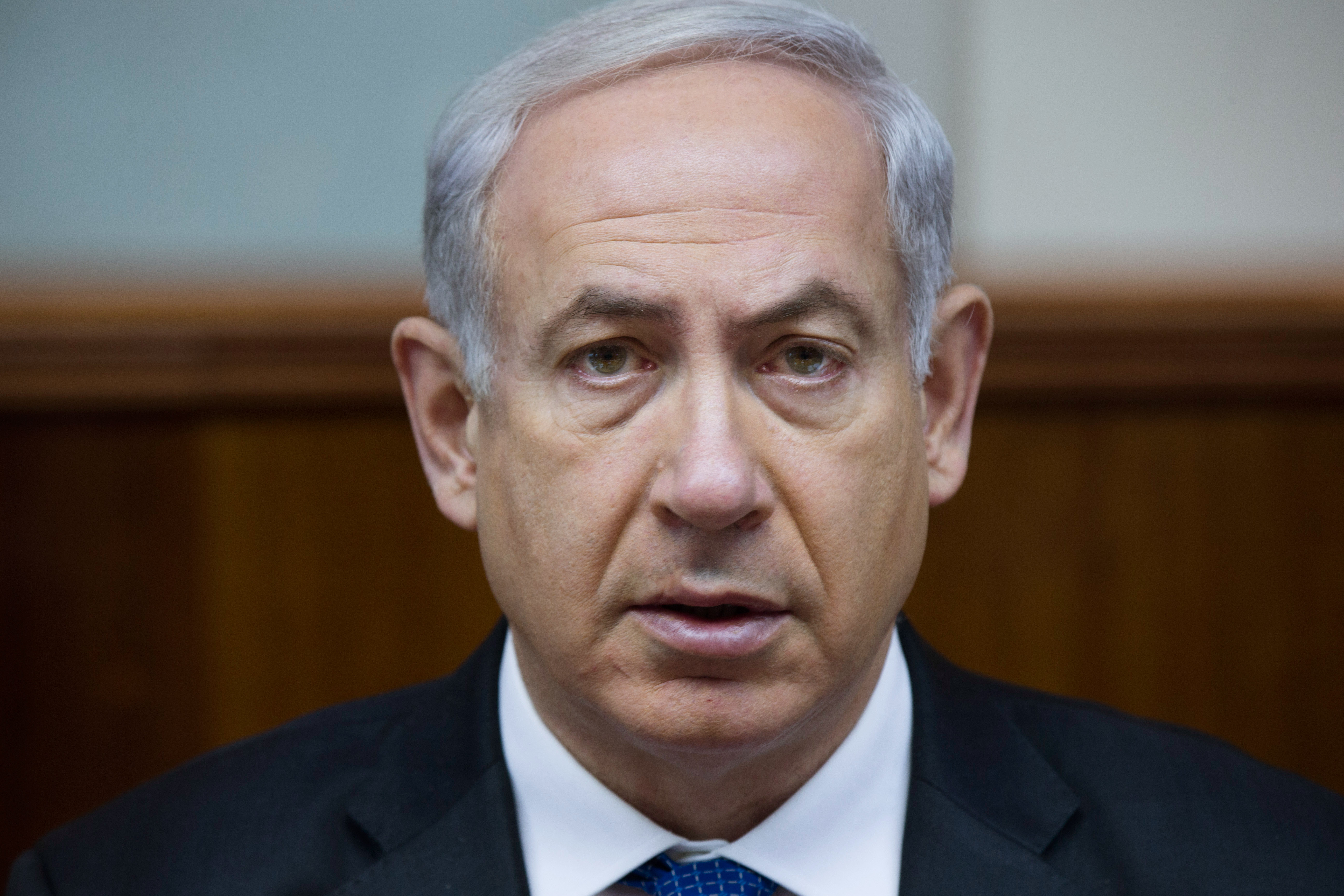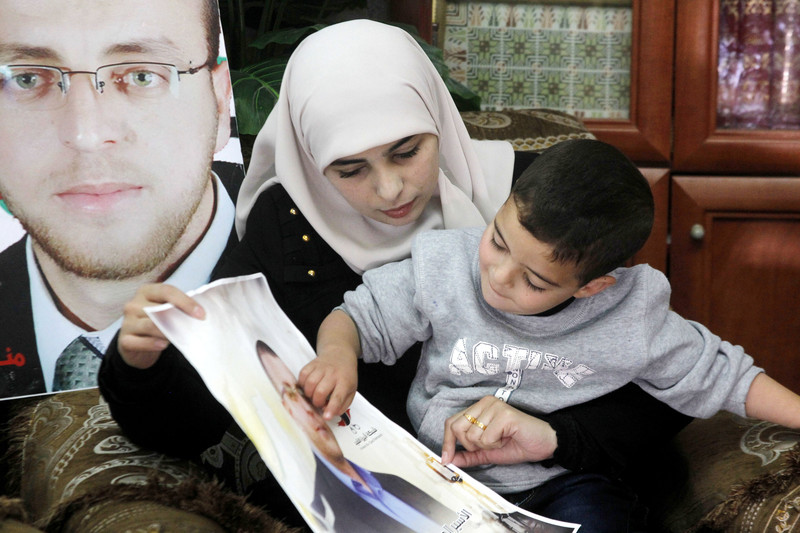
Fayha Shalash, the wife of Palestinian journalist Muhammed al-Qiq, sits with her son at her home in the West Bank village of Dura on January 20, 2016. Al Qiq is seen in the poster. Photo: Wisam Hashlamoun/APA images
Muhammed -What were you thinking about when you accepted the reality of your own death?
What thoughts and images went through your mind when you realized you were willing to risk permanent physical damage or even death to gain your freedom?
Were you thinking about the softness of your babies’ cheeks? How they smelled so fresh and their skin felt so soft after bath time?
Muhammed al Qiq, a Palestinian journalist and father of two small children, has been on hunger strike for over seventy-five days – refusing everything but water, to protest the torture and other ill-treatment to which he says he was subjected to in Israeli custody, and to demand his release from detention he believes is motivated by his work as a journalist. He was placed under administrative detention, unable to see the evidence against him and unable to challenge the ‘evidence’ or his accusers in a fair judicial setting. SEE THE REST OF THIS POST
